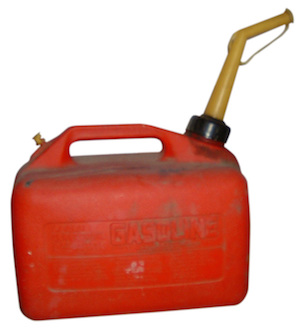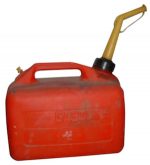Many of the people who purchase land from us do so because they dream of living off the grid. One of the essential components of any off grid power system is a good backup generator. Regardless of how many solar panels, batteries, or wind generators you might own, there will be times when Mother Nature just won’t provide enough energy to keep your batteries adequately charged.
 This is where the backup generator comes into play. If you happen to have a few days in a row without any sun and you are relying on solar energy, you’ll need a way to recharge your battery bank. Running a generator during these “dark” times can supply you with enough power for your needs while charging your batteries at the same time.
This is where the backup generator comes into play. If you happen to have a few days in a row without any sun and you are relying on solar energy, you’ll need a way to recharge your battery bank. Running a generator during these “dark” times can supply you with enough power for your needs while charging your batteries at the same time.
When people are looking into purchasing a generator, they often wonder if they should buy one that runs on gas, propane, or diesel fuel. Let’s take a minute and discuss all three options.
Gas Generators
We’ll talk about gasoline powered generators first. Models in this category tend to be the least expensive to purchase but there are some factors that add to their “operating costs”. A gasoline powered generator has some distinct disadvantages. First, most of them are very loud! With the exception of a few such as some of the Honda and Yamaha models, these generators need to run at around 3600 RPM’s to provide the necessary voltage you’ll need. Because they need to run at nearly full throttle, they aren’t very fuel efficient and running at such high RPMs means that you’ll need to perform more frequent oil changes and maintenance. They typically have a shorter life span than a diesel generator.
Another annoying issue associated with gas powered units is that you’ll have to purchase gas in multiple, small five gallon containers. Gasoline also doesn’t store well and will go stale if you keep it around too long. If you leave old, untreated gasoline in a generator, you might find that it won’t start when you need it to due to varnish accumulation in the carburetor from the stale gasoline.
Propane Generators
Next let’s take a look at propane powered generators. These units are appealing to many people because they can have propane delivered in bulk quantities. When you set up a propane generator, you also don’t have the hassle of buying and storing gasoline which can be a bit of a problem. The big disadvantage of propane powered units is that propane produces less energy per gallon when burned. We won’t get into the details in this article but just understand that a propane generator will have a tendency to be less fuel efficient than gas or diesel generators as a general rule.
Diesel Generators
Now, we’ll have a look at diesel generators. The initial purchase price of these generators tends to be higher than both the gas and propane units but you’ll actually end up saving money down the line if you choose to go this route. Diesel engines can produce more power at lower RPM’s than both gasoline or propane powered engines. This means that they are more fuel efficient, need less maintenance, and have a longer lifespan. A good diesel generator can usually putt along at a low RPM and sip fuel while runs as apposed to a gasoline engine that needs to run much faster while gulping the gasoline down.
Another advantage of running on diesel is that like propane, you can have bulk quantities delivered and you may be able to purchase farm diesel to which will save your a bit of money. Some people even make their own bio-diesel from recycled cooking oil they get for free from local restaurants to power their diesel backup generators.
Hopefully this article helped you see some of the pro’s and con’s of the various types of fuel used to power off grid backup generators. Be sure and visit our blog again for more helpful articles that are soon to come!






